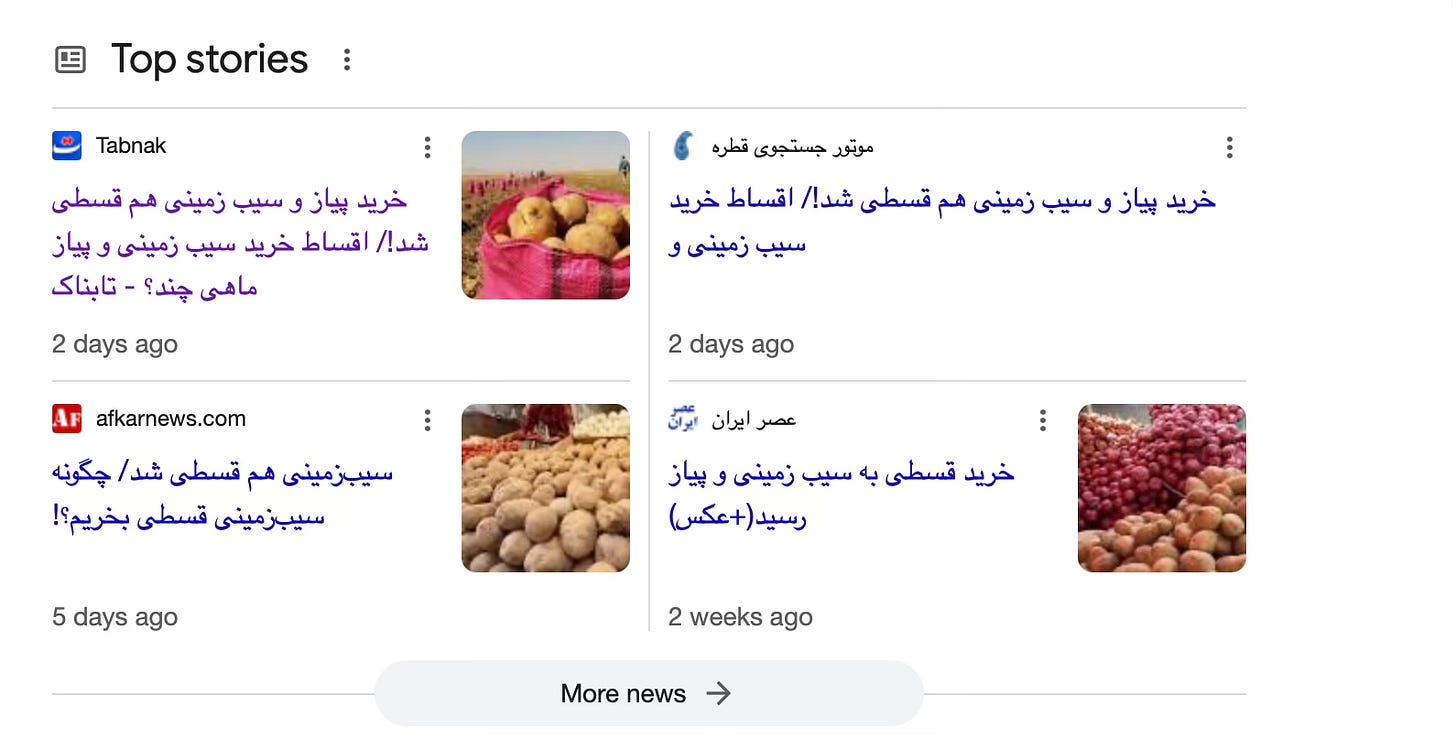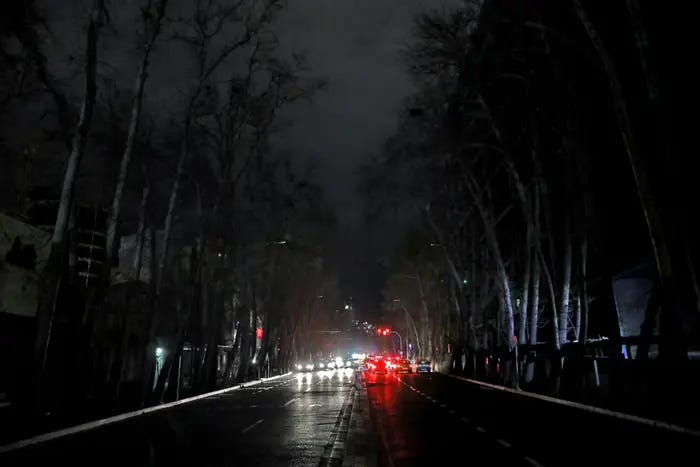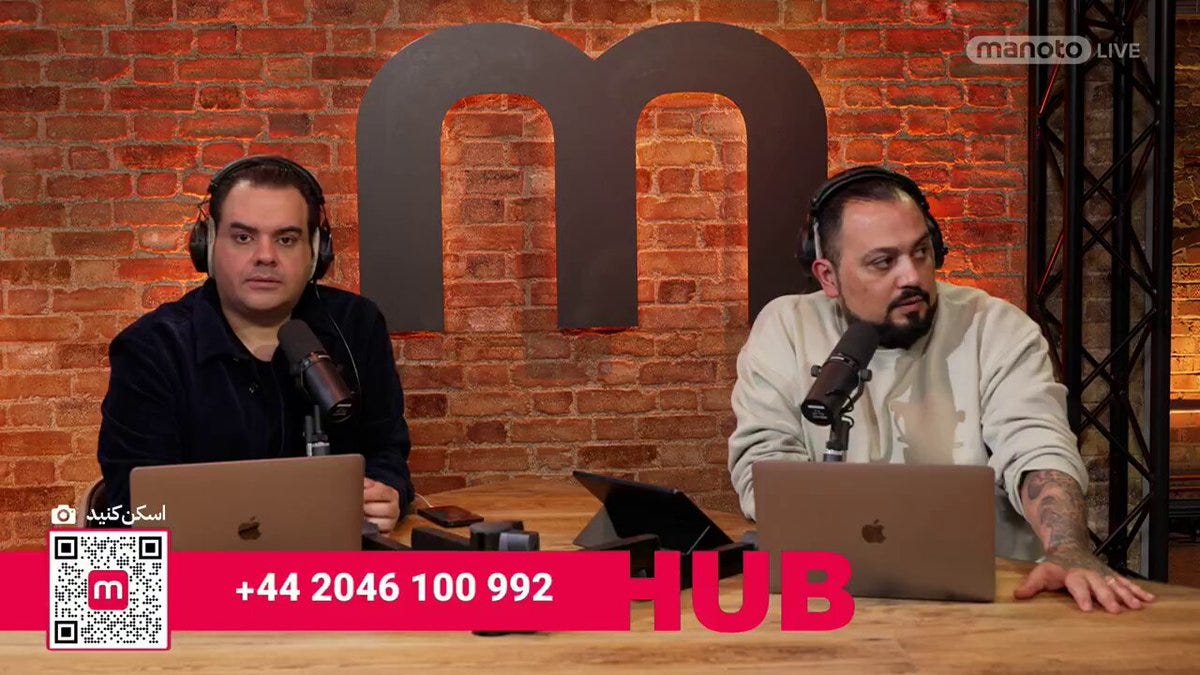Is this the end of the Islamic Republic? If so, how?
As Iran plunges further into economic and political chaos, one question remains: How much longer can the regime hold on?
Dark images of major Iranian cities have surfaced across social media, revealing widespread blackouts. Recently in the capital, Tehran, nearly all lights—including traffic signals—were extinguished. "Our family spent the whole evening in our car," shared one Twitter user, posting a photo of their darkened neighborhood in central Tehran. "There is no electricity or gas. It's unbearably cold and dark in our flat. At least in the car, we have some light, can charge our phones, and use the heater."
Authorities have announced that twenty-five out of Iran’s thirty-one provinces will remain closed tomorrow. In recent weeks, cities across Iran have been grappling with persistent electricity and gas shortages, a crisis the government has strategically labeled as "imbalances" to avoid the politically charged term "shortages." As Iran endures an unusually harsh winter, citizens are growing increasingly frustrated over the lack of gas supply in a country that possesses the world’s second-largest natural gas reserves.
However, energy shortages are just one aspect of the mounting crisis in Iran. Economic hardship is pushing many to the brink. "I even buy food in installments. Rice, eggs, bread—I purchase them in small portions because I have no other choice. I'm ashamed in front of my son," said Mona, a 39-year-old woman from Tehran, in an emotional call to London-based Persian-language broadcaster Manoto TV. "I only eat one meal a day. I only feed my child once a day. I earn just $150 a month, and $40 of that goes to rent." Overcome with emotion, she broke into tears. "I hate myself for bringing a child into this world."

Mona’s call prompted an outpouring of similar testimonies. "You are not alone, Mona," another viewer reassured her, calling from inside Iran. "I was listening with my mom and dad. I have never seen my father cry before, but he did yesterday. I was born in 2000, and my generation is living in daily misery."
Over the past month, I’ve been contributing to Manoto TV, an experience unlike any other in my journalism career. Unlike large media corporations, which often create a distance between journalists and viewers, Manoto is deeply connected to its audience. It serves as a platform for Iranians from all walks of life—whether privileged youth curious about Western lifestyles or struggling citizens willing to spend their meager earnings just to share their voices.
"I am a construction laborer," said Amir, calling from the religious city of Mashhad. "I earn just $4 a day." His voice was weary. "I have children. It’s so difficult to survive. Every day, prices go up, and I cannot—" The line abruptly cut off. Whether it was an intentional government intervention or simply that Amir ran out of phone credit, I couldn’t tell. But considering the high cost of making international calls, it’s likely that he sacrificed days of wages just to share his struggle.
Iran’s telecommunications infrastructure is state-controlled and tightly monitored. "I have nothing left to lose. We are so poor. Let them come and take me; at least then I won’t have to worry about affording food," another caller said in response to concerns about the regime’s crackdown on dissent.
Over the past two months, the Iranian Rial has plummeted in value, and food prices are skyrocketing. Small-scale but frequent anti-regime protests and labor strikes are becoming daily occurrences. Yet, the government remains both unwilling and unable to address the deepening crisis. Internationally, Iran’s influence is also waning. Hamas and Hezbollah leadership have suffered severe losses, Syrian President Bashar al-Assad has fled, and the new Syrian government has severed ties with Tehran. Meanwhile, Donald Trump has returned to the White House, reinstating his "maximum pressure" policy against Iran.
Despite these mounting pressures, the Iranian leadership remains defiant. Supreme Leader Ali Khamenei dismisses the country’s hardships as Western propaganda. "Some people make it their mission to instill fear in the hearts of Iranians," he claimed, accusing foreign media of spreading panic. More disturbingly, he has ordered security forces to target Iranian journalists abroad and arrest their family members, a campaign confirmed by UK intelligence agency MI5 and U.S. security officials.
Domestically, even some reformist factions within the regime advocate for renewed negotiations with the U.S. to lift sanctions and stabilize the economy. But Khamenei has categorically rejected such talks. "Negotiating with the United States will not solve the country’s problems; we must understand this correctly," he recently declared.
His statement sparked heated reactions online. "For once in his life, Khamenei is right," one user on X (formerly Twitter) posted. "The problem isn’t the U.S.—it’s the regime itself. After the JCPOA, they made billions, and nothing changed for us. As long as they’re in power, things will only get worse."
Donald Trump has indicated he hopes Iran will negotiate for peace, warning of severe consequences otherwise. Meanwhile, exiled Iranian Crown Prince Reza Pahlavi has urged Trump to maintain maximum pressure on the regime while supporting Iranian efforts to overthrow it. In a recent interview with The Daily Telegraph, Pahlavi stated, "My country is on the brink of a revolution similar to 1979." He argued that Iran is now ideologically bankrupt, economically crippled, and militarily weakened, even among its longtime supporters. "There is a critical window of opportunity to change history—it may only be open for a few months," he said. "Iran is in a revolutionary, or at the very least, pre-revolutionary state. Every day, protests intensify. The chants on the streets, the demonstrations—all of them demand an end to this regime. 'Death to the dictator. Death to the Islamic Republic.'"
There is not a single piece of good news coming out of Iran. The country is engulfed in poverty, misery, political and social oppression, and rising tensions between the regime and its people. Meanwhile, clear evidence suggests the regime has actively sought to divide the diaspora opposition, making it difficult for them to unite against the ruling establishment.
Trust in opposition groups has always been complicated, as many once supported the regime—either as communist and Marxist revolutionaries who allied with Islamists in 1979 only to be sidelined later or as reformists who sought to make controlled changes to maintain the system. The alternative is the former Crown Prince Reza Pahlavi, the late Shah’s son, now widely respected as someone who once modernised Iran. While some opposition groups unite against him, the regime exploits these divisions by spreading disinformation and misinformation online.
"We need to choose a date and take to the streets," a Manoto TV viewer urged, calling on the Crown Prince to set a day for mass demonstrations. "A revolution needs to be organised." While some believe leadership is needed, others argue an uprising will happen organically, as seen in the "Woman, Life, Freedom" movement.
Regardless of whether leadership directs it or it unfolds naturally, as Iran plunges further into economic and political chaos, one question remains: How much longer can the regime hold on?








Good piece Ali and one to mark. I wonder though, given how good the IRI has been at surviving, if its end will eventually come when everyone least expects it, as just happened in Syria